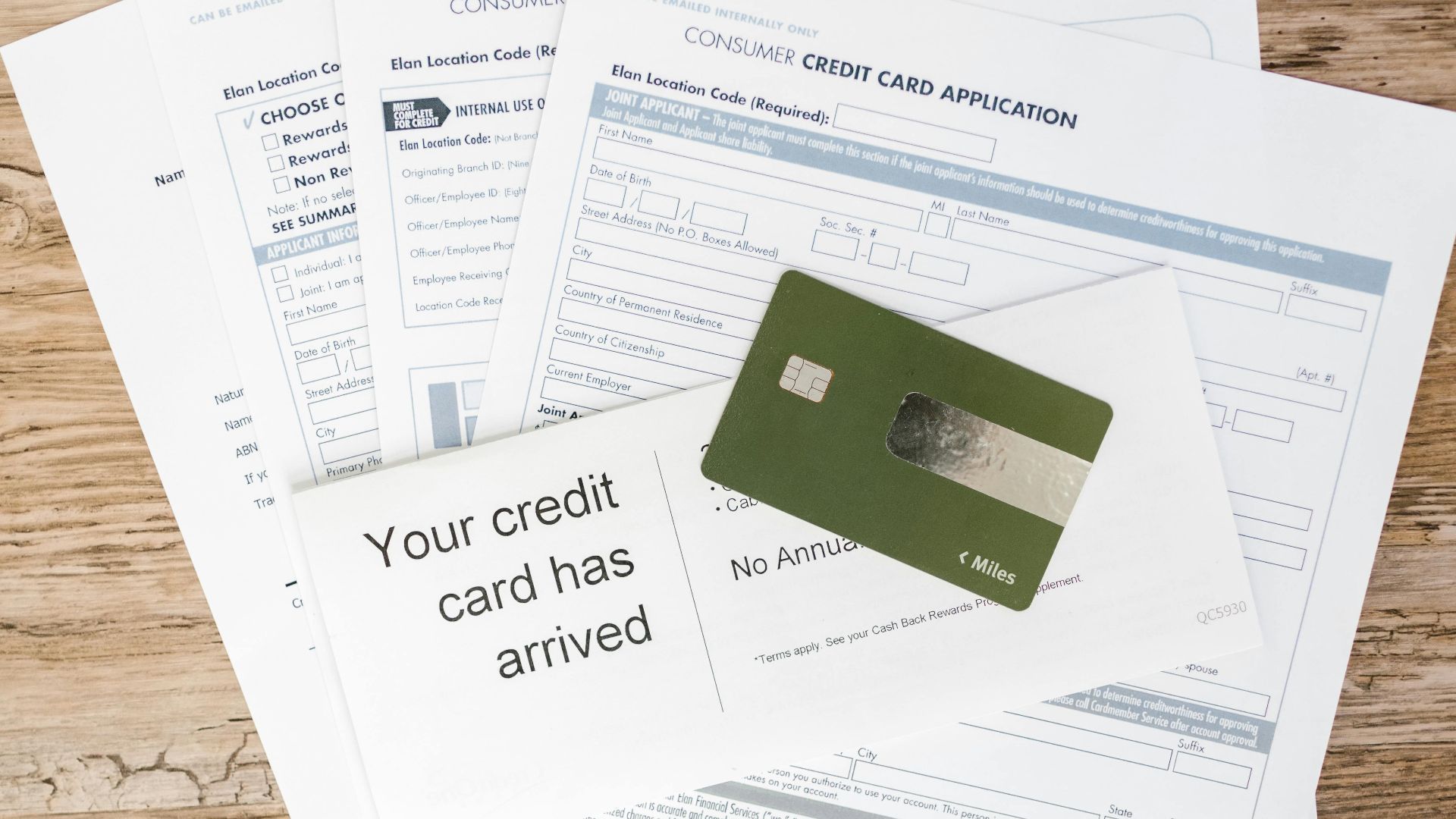Fresh Approaches To Money Management
Life changes, like divorce and health shocks, can upend financial stability in an instant. Many believe a financial reset requires extraordinary luck or timing, yet the real difference often lies in small, deliberate steps.
Here's what experts say you can do to start fresh and take control of your financial future.

Create A One-Page Net Worth Statement
Building a single-page net worth statement helps you see your financial reality without confusion. Add up assets like savings, investments, and property, then subtract debts. The resulting number shows whether you’re moving forward or backward financially, and provides a baseline for meaningful progress.
Pull A Free Credit Report
Your credit report influences everything from loan approvals to rental agreements. You can get one free report annually from each credit bureau at AnnualCreditReport.com. Review it carefully to spot inaccuracies or identity theft. Correcting errors can raise your score and immediately improve your financial foundation.
Open A Separate “Emergency Fund” Account
Creating a dedicated savings account for emergencies builds financial resilience. Even starting with a modest amount protects funds from being mixed with everyday spending. Over time, consistent deposits accumulate into a reliable safety net.
Write Down Fixed Vs Variable Expenses
Clarity on spending begins by separating fixed expenses, like rent and insurance, from variable costs, such as groceries. This distinction allows you to identify areas where you can reduce spending quickly. By visually listing both categories, you’ll discover hidden patterns.
Set Up Autopay On Essentials
Automation reduces stress and prevents costly late fees. Setting up autopay for essentials like rent, utilities, or insurance ensures obligations are met on time, protecting your credit score. Keep a small buffer in the linked account to avoid overdrafts.
Inventory Debt By APR And Balance
Not all debt carries equal weight. High-interest obligations, like credit cards, often demand attention before low-interest loans. By creating a list with each balance alongside its annual percentage rate, you can prioritize intelligently and create a roadmap for repayment strategies.
 Photo By: Kaboompics.com, Pexels
Photo By: Kaboompics.com, Pexels
Track One Month Of Spending
Monitoring every dollar spent for a single month offers insights that spreadsheets alone can’t provide. Use free apps or even pen and paper to record daily purchases. Patterns emerge and you can highlight unnecessary leaks. Once identified, small changes can redirect funds toward savings and debt reduction.
 Photo By: Kaboompics.com, Pexels
Photo By: Kaboompics.com, Pexels
Ask For A Raise Or Internal Promotion
Your existing job may be the most powerful income booster. Document recent accomplishments and schedule a structured conversation with your manager. Employers often prefer rewarding current talent rather than hiring externally.
Negotiate One Bill This Week
Calling your service providers can yield immediate savings. Prepare by researching competitor offers and politely asking for a match. Even a small monthly reduction compounds significantly over time, freeing cash flow for debt payments, savings, or emergency fund growth.
Check Insurance Gaps
Insurance protects against risks that can destroy financial progress. Review policies to confirm adequate coverage. Consider disability insurance if your household depends heavily on earned income. Avoid being overinsured, but ensure gaps don’t expose you to catastrophic expenses that would erase years of careful planning.
Build A 1-Month Buffer
A one-month buffer separates you from paycheck-to-paycheck living. Saving one month’s worth of expenses may seem daunting, but breaking it into weekly deposits makes it achievable. This cushion allows breathing space during temporary setbacks like delayed paychecks or unexpected repairs.
 Photo By: Kaboompics.com, Pexels
Photo By: Kaboompics.com, Pexels
Choose Your Debt Payoff Method
Selecting a repayment method increases focus and motivation. The avalanche method focuses on debts with the highest interest rates, minimizing total cost. The snowball method targets the smallest balances first, creating quick wins and momentum. Choose the approach aligning with your psychology and budget, then stick consistently to accelerate progress.
Consider A Balance Transfer Card Or Consolidation Loan
When debt carries heavy interest, shifting balances to a lower-rate option may help. Balance transfer cards often provide promotional zero-percent periods, while consolidation loans simplify multiple payments. However, fees and future rates matter—read terms carefully.
Call One Creditor To Request A Rate Reduction
Creditors often grant lower interest rates to customers with consistent payment histories. Prepare by citing your positive track record and mentioning competitor offers. Even a modest reduction frees money each month to accelerate debt repayment.
Try The 50/30/20 Rule
The 50/30/20 rule assigns 50% of income to essentials, 30% to wants, and 20% to savings or debt repayment. This framework adapts easily across income levels, creating balance without endless spreadsheets while ensuring important financial goals always receive consistent attention.
Sync Bill Due Dates With Paychecks
Aligning due dates with your pay schedule minimizes late fees and overdraft risk. Many providers will adjust billing cycles if you ask. This coordination allows smoother cash flow management and ensures predictable timing of expenses.
Use The “Pay-Yourself-First” Rule
Instead of waiting to save what’s left, commit to saving first. Automatic transfers to a savings account after payday guarantee progress toward goals. This approach turns saving into a habit rather than an afterthought, steadily building reserves and investments.
Set Up A Low-Cost Index Fund Auto-Investment
Investing does not need to be complicated or time-consuming. Low-cost index funds track the overall market, providing diversification and growth with minimal fees. Setting up automatic contributions, even in small amounts, builds wealth steadily.
Open A Secured Credit Card
If rebuilding credit, secured credit cards provide a safe start. They require a small cash deposit that becomes your limit, reducing risk to the lender. Use it for small purchases and pay the balance in full monthly.
Learn Your Risk Profile By Horizon
Risk tolerance should not be based solely on age but also on time horizon. Money needed in the next three years belongs in safe, liquid assets. Funds for long-term goals can weather market swings. Aligning investments with specific timelines ensures both safety and growth.
 Photo By: Kaboompics.com, Pexels
Photo By: Kaboompics.com, Pexels
Open A Roth IRA Or Local Equivalent
Roth IRAs allow after-tax contributions that increase tax-free, and withdrawals are not taxed if conditions are met. Even small, consistent deposits compound significantly over decades. If a Roth IRA isn’t available, explore tax-advantaged alternatives in your state or workplace plan.
 Hadayeva Sviatlana, Shutterstock
Hadayeva Sviatlana, Shutterstock
Avoid Complex Products
Sophisticated-sounding financial products often hide high fees or inflexible terms. Whole life insurance or actively managed funds may promise stability, but can reduce returns. Focus on straightforward, low-cost investments with clear benefits.
Pick One Side Hustle Skill
Identify a skill you already have—writing, tutoring, delivery driving, cooking, or design—and monetize it as a side hustle. Choose one area to focus on rather than juggling many. Extra income accelerates debt payoff and overall financial independence.
 Photo By: Kaboompics.com, Pexels
Photo By: Kaboompics.com, Pexels
Upskill With A Micro-Credential
Short, targeted certifications can deliver quick returns. Many online platforms offer affordable programs in fields like project management or digital marketing that lead directly to higher-paying work. Evaluate cost and expected pay increase, as micro-credentials can be a low-risk way to strengthen earning potential within a year.
Avoid Lifestyle Inflation
When income rises, it’s tempting to match spending with earnings. Resisting lifestyle inflation by banking raises or bonuses preserves long-term financial flexibility. Directing extra income into savings or debt reduction accelerates progress far more effectively. Living below your means today creates freedom to handle unexpected events.
 Photo By: Kaboompics.com, Pexels
Photo By: Kaboompics.com, Pexels

























